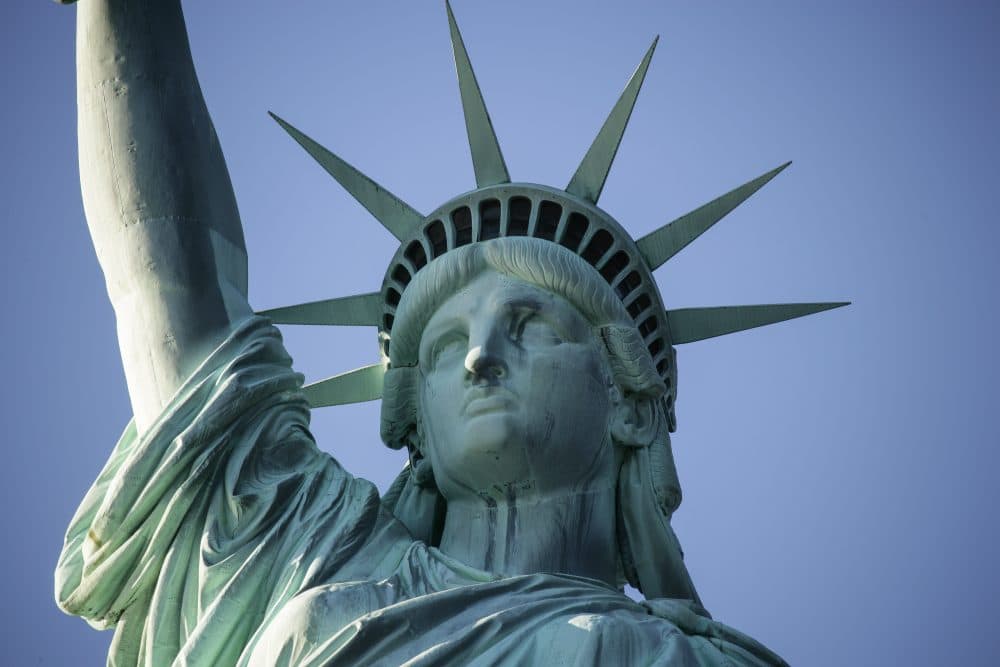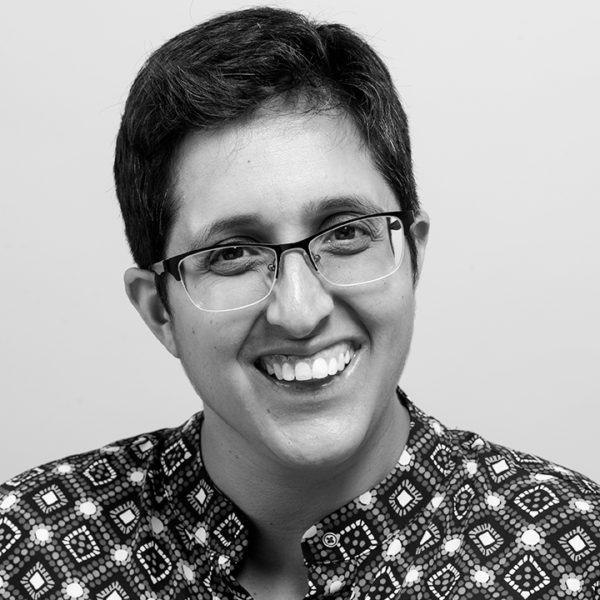Advertisement
commentary
We Will Open The Gate And Welcome Strangers

Last week, I walked into the main office at the middle school where I teach and saw a family standing across the laminate counter from our secretary. They were enrolling their daughter in our school, and the glaring fluorescent lights illuminated the tension on the faces of all involved. These were the faces of people who were struggling to communicate.
I had 35 minutes between classes — the only compensated time to complete the planning, grading and communicating with families that keep me at school three to four hours after dismissal each day. But I introduced myself in Spanish, and asked if I could help. They had just moved from Colombia, the mother explained. They lived in East Boston, but their daughter was assigned to our school in Dorchester, three train changes away. She had never taken the train alone, and they were scared to leave her without knowing how she would make it home.
I started to write down train directions, then realized I could do better by this family. I took them to an incredible new closet at our school where children can get clothing, toiletries, backpacks and supplies. I introduced them to their daughter’s math teacher, and asked her to ensure that their daughter leave school with another student making the same train journey. I gave the parents the math teacher's phone number so they could text her with any questions after they left school. I made sure they met the school principal, so they knew another Spanish-speaker in the building. And by the time they kissed their daughter goodbye, their faces had relaxed into smiles.
My bedroom growing up was never called, 'Neema’s bedroom.' It was 'the guest bedroom,' filled more often with guests than it was with me.
I tell this story not to trumpet my welcoming skills, or the practices of my school, but because I think it should be the norm in welcoming immigrants to our country. It’s a lesson I learned early in life, from my Indian immigrant parents who settled in Cross Lanes, West Virginia, and subsequently became the welcomers for every new Indian family in town. When I ask old family friends how they met my parents, the story always contains the word “insisted”: “Your dad called and insisted that we come to dinner.” Or, “Your dad heard that there was a job opening in town, and insisted I apply for it." Or, “Your mom and dad insisted that I stay with them until I found a place to live.”
My bedroom growing up was never called, “Neema’s bedroom.” It was “the guest bedroom," filled more often with guests than it was with me. I grew accustomed to sleeping on the floor in my parents’ room, or my sister’s room. I thought that every family had strangers over for dinner at least once a week. Initially, Indian strangers, but later, French, German and American strangers who had come to work at the chemical plant with my dad.
My parents saw themselves not as gatekeepers, but rather as gate-openers. They made the incredibly difficult transition into American life and were compelled to do anything in their power to make it easier for those who came after them. They understood, and taught me, that the more we do to smooth someone’s path at the start, the stronger outcomes that person will have in the long run.
In adulthood, I have not been good at carrying through with this responsibility. Many of my friends are also born and raised here in the U.S. I don’t often have the opportunity to open gates for new arrivals, and I have not sought to do so proactively, either.
Will you protect the poor?/Will you welcome the lost to your shore?
Sherman Alexie
But in my civics class a few weeks ago, my students and I read Sherman Alexie’s new poem, “Hymn.” I asked students to note lines that resonated for them, and this verse was a resounding favorite:
“So let me ask demanding questions: Will you be
Eyes for the blind? Will you become the feet
For the wounded? Will you protect the poor?
Will you welcome the lost to your shore?
Will you battle the blood-thieves
And rescue the powerless from their teeth?
Who will you be? Who will I become
As we gather in this terrible kingdom?”
In our discussion of the poem, we talked about how, in the face of virulent hate-mongering, silence is not an option. Not saying or doing hateful things is not enough. It is incumbent on each of us to be proactively positive.
Our conversation gave me pause. How much work have I done to be proactively positive? How hard am I trying to love outside the bounds of my existing community? My students’ voices were in my head as I worked with the new Colombian family last week. My students’ voices have been in my head ever since, especially as our city begins to receive newly arrived children and families from Puerto Rico, seeking shelter from the ravages of Hurricane Maria.
Last week, my students designed murals for us to paint at school to express pride in our school’s diversity (more than 25 countries are represented), and to welcome immigrants into our community. One student created an image that has stayed with me: A set of stairs leads up to a doorway. The doors have been flung open, and a group of people stands in the doorway with smiles on their faces, and their arms outstretched. Above their heads, she inscribed a line from Alexie’s poem:
“We will be courageous with our love/We will risk danger/As we sing and sing and sing/ to welcome strangers."
